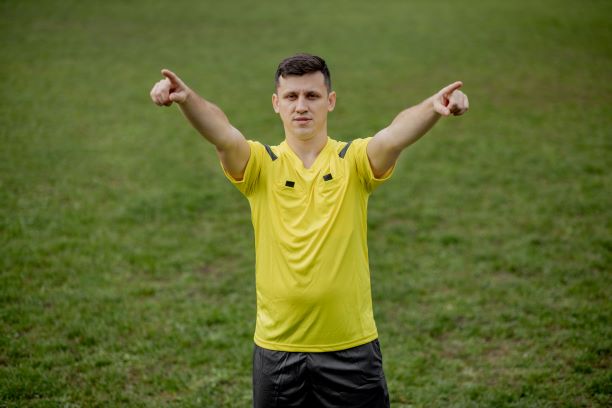It’s fair to say that Video Assistant Referee technology hasn’t enjoyed the smoothest introduction into English football. While the intention of VAR i
It’s fair to say that Video Assistant Referee technology hasn’t enjoyed the smoothest introduction into English football. While the intention of VAR is to create a less contentious game, controversy is arguably more common than ever before. The Premier League took on the technology at the start of the 2019-20 campaign, yet it remains problematic at the back end of the 2020-21 season. This ongoing inability to iron out its application and corresponding rules leaves football fans asking the following question: is the English game ready for video assistant technology?
Is There a Simple Solution to Ongoing Issues?
The days of disputing incorrect calls from referees and assistant officials feels like a distant memory. In reality, human-only judgements were still in place less than two years ago. It speaks volumes that fans, players, and coaches alike are vocalizing their desire to rid technology from the English game.
However, as the West Bromwich Albion manager, Sam Allardyce, states, VAR often gets the wrong decisions because of human error, as per the Daily Echo. The Baggies were denied an early goal in their home clash against Southampton, even though VAR officials couldn’t find a conclusive camera angle to determine whether Mbaye Diagne was offside.
Sam Allardyce on VAR confusion: “Clarity with VAR has become clouded. Clear and obvious has turned into confusion. What is a penalty and what isn’t? VAR was supposed to clarify. It is still fuzzy. I see a handball at Chelsea not given and ours given.”
— Simon Stone (@sistoney67) March 3, 2021
In the short-term, this should concern English football’s governing bodies. At match speed, fans can forgive referees for making the wrong calls, even if they’re costly. However, those watching back contentious issues without raising them have no excuse. If human error is responsible for inconsistency regarding VAR’s application and interpretation, it calls into question the standard of officiating in the Football League.
The No-Tolerance Policy is Badly Failing
Before VAR, there was something of an unwritten rule that the attacker would have some leeway in inconclusive offside calls. However, that’s no longer the case, with VAR bringing in a no-tolerance policy. In Liverpool’s 2-1 victory over Aston Villa at Anfield, Roberto Firmino had a goal ruled out because Diogo Jota was supposedly offside in the build-up. The images, however, appeared inconclusive. In response to the controversy, Pierluigi Collina, a former six-time FIFA Best Referee of the Year, stated that on-field decisions can’t be overruled by inconclusive angles, according to the Liverpool Echo.
In cricket, the umpire gets a margin of error. If the Decision Review System is required for an LBW appeal, for example, more than 50 percent of the ball must be predicted to hit the stumps to reverse a not-out decision. If this isn’t the case, the on-field decision remains. There’s no reason that a system like this wouldn’t work in English football, just as Collina suggests.
Off the pitch, football has successfully embraced real-time technology. Football Studio First Person, a slot game at Casushi, uses a football-fixture-inspired system to replicate football’s realism. With live dealers and a commentator-style approach to presentation, the all-action development uses video technology to heighten enjoyment levels. The title’s success makes it even more baffling as to why experts can’t get it right with VAR on the professional stage.
Governing Bodies are in a Difficult Position
Given that VAR is in force throughout Europe in domestic competitions and cross-country tournaments, scrapping the technology would put the Premier League at a long-term disadvantage. England’s governing bodies have come too far to get rid of the system now, but many agree that wholesale changes must happen ahead of the 2021-22 season.



















































































































COMMENTS